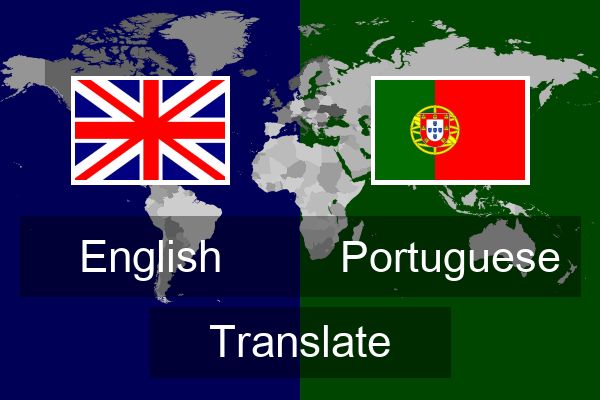Certified English To Portuguese Translation for Certification
Certified English To Portuguese Translation for Certification
Blog Article
Leading Tips for Perfect English to Portuguese Translation Services
Accomplishing phenomenal English to Portuguese translation needs more than mere word-for-word conversion; it demands an understanding of linguistic details and cultural nuances. Choosing certified translators that are both culturally mindful and proficient is vital - English To Portuguese Translation. What various other critical aspects should be considered to raise translation high quality better?
Understand Cultural Nuances
When equating from English to Portuguese, understanding the social nuances is necessary for generating a powerful and accurate message. The Portuguese-speaking globe is varied, encompassing different regions, each with its unique custom-mades, expressions, and social norms. A translator needs to be attuned to these nuances to make certain that the translation not just shares the intended message yet likewise resonates with the target market.
For example, idiomatic expressions in English might not have direct counterparts in Portuguese. An expression that functions well in one society could lead to complication or misinterpretation in an additional. Comprehending local dialects and variations, such as those found in Brazil and Portugal, is essential; words may hold various undertones or usages relying on the place.
Furthermore, social context plays a significant duty in translation. Factor to consider of historical, social, and political aspects can affect language choices and tone. This social awareness permits the adjustment of content that aligns with neighborhood worths and assumptions, consequently enhancing the efficiency of interaction. Ultimately, a comprehensive understanding of cultural nuances is crucial for providing translations that are not just linguistically precise yet additionally culturally pertinent and interesting.
Select Certified Translators
Picking qualified translators is a crucial step in making certain the precision and quality of English to Portuguese translations. A translator's knowledge not just encompasses language effectiveness however also a deep understanding of cultural context, colloquial expressions, and industry-specific terminology. When selecting a translator, prioritize those with formal training in translation research studies or grammars, in addition to appropriate certifications that show their specialist competence.
Experience plays a crucial role as well; translators specializing in particular areas-- such as legal, medical, or technological-- are more probable to deliver accurate translations customized to the sector's standards (English To Portuguese Translation). Additionally, consider their profile and customer endorsements to assess their previous work quality and dependability
Engage translators who are indigenous Portuguese audio speakers, as they have an inherent understanding of the language's nuances and local dialects. This experience boosts the translation's credibility and efficiency.
Use Contextual References

When converting, it is vital to acknowledge colloquial expressions and social references that might not have straight matchings in Portuguese. For circumstances, particular phrases that reverberate in English could need adjustment to convey the exact same emotional weight or cultural value in Portuguese. Using contextual recommendations can assist translators pick the right terms and design, thus enhancing the total clarity and influence of the translation.

Concentrate On Localization
Localization plays an important role in the translation process from English to Portuguese, as it guarantees that the converted material is relevant and culturally proper to the target market. English To Portuguese Translation. This process surpasses plain translation; it involves adapting the content to the cultural, social, and etymological subtleties particular to Portuguese-speaking areas
Recognizing regional expressions, customs, and choices is vital. Specific phrases or recommendations that reverberate with an English-speaking audience might not have the very same effect on Portuguese speakers. It is important to take into consideration regional variants, such as Brazilian Portuguese versus European Portuguese, as each has distinct vocabulary and stylistic differences.
Additionally, localization encompasses formatting, such as date and time formats, money, and measurement systems, which can vary considerably across cultures. This interest to detail fosters a connection with the target market, improving interaction and understanding.
Moreover, utilizing neighborhood languages and jargon can give authenticity, making the web content a lot more relatable. By concentrating on localization in English to Portuguese translation, organizations can successfully connect their message, develop depend on with their audience, and eventually accomplish their designated objectives.
Evaluation and Edit Extensively
Thorough evaluation and modifying are vital steps in the translation process, specifically when converting English material into Portuguese. This phase ensures that the translated product not just keeps the original meaning however also reverberates well with the target audience. Offered the cultural and etymological nuances, a thorough strategy to review and editing is vital.
Begin by contrasting the original English message with the Portuguese translation, paying very close attention to tone, context, and terms. It's important to guarantee that social recommendations you can find out more and colloquial expressions are properly adjusted for the Portuguese audience. Involving a 2nd translator or a native speaker for this evaluation process can provide very useful understandings and capture mistakes that might have been neglected.
In addition, look for grammatic precision and stylistic consistency throughout the file. Common difficulties such as false cognates or uncertain expressions must be addressed to prevent misinterpretation.
Final Thought
Accomplishing extraordinary English to Portuguese translation services demands a thorough technique that encompasses understanding social subtleties, picking certified translators, using contextual referrals, focusing on localization, and performing comprehensive evaluations and edits. Each component plays a critical duty in making certain that translations are not just precise however likewise reverberate with the target audience. By implementing these techniques, organizations can improve the performance of their interaction and foster a deeper connection with Portuguese-speaking target markets.
Attaining phenomenal English to Portuguese translation needs more More Bonuses than mere word-for-word conversion; it requires an understanding of social subtleties and linguistic ins and outs.Picking certified translators is a vital step in making sure the precision and quality of English to Portuguese translations.Detailed evaluation and editing and enhancing are crucial steps in the translation process, specifically when converting English material into Portuguese.Begin by comparing the initial English message with the Portuguese translation, paying close focus to terms, context, and tone.Attaining outstanding English to Portuguese translation solutions necessitates a detailed method that includes understanding cultural nuances, choosing qualified translators, utilizing contextual recommendations, focusing on localization, and performing extensive testimonials and edits.
Report this page